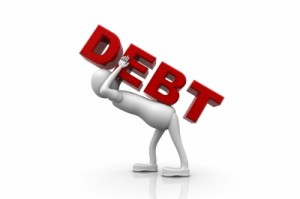 Reader question: Can a creditor obtain information about my finances?
Reader question: Can a creditor obtain information about my finances?
If you are in arrears or refuse to pay a debt there are some actions that a creditor can take to try and recover their money. The normal course of action is to apply for a County Court Judgement (CCJ) against you to repay the debt. If you fail to repay the debt the creditor can apply to take further action against you, one of which is an 'order to obtain information'.
What is an order to obtain information?
- an order for information is an order for you to attend court to be questioned under oath about your financial circumstances
- creditors will normally apply for this order to help them to decide their course of action to obtain repayment of their debt
- you can be asked questions about - your income and outgoings, your job, your home and any savings and investment you may have
- the order will give a list of documents that you must bring to the hearing
- you will have to attend court in person or apply for a change of date
- if you fail to turn up to the hearing you could be sent to prison
What preparation can I do for the order to obtain information court hearing?
- before attending the court hearing you will need to prepare a full financial statement so that the creditor can see whether you can afford to repay the debt
- the financial statement allows the creditor to find out if you have any equity in your home and the total of any investments
- it will also show how much money you have left after all your living expenses
- you will need to attend the court with the necessary documents to support your financial statement, such as - bank statements, credit agreements, proof of any other debts
What will happen at the order to obtain information court hearing?
- a court official will normally ask questions, about your financial statement, which can be quite searching
- you will be answering questions under oath or affirmation which means you swear that your answers are truthful
- you will be asked to sign a written record of the information you have provided
- you will normally have to pay your creditor's expenses for making the application for the order which will added to the outstanding debt
What happens after the order to obtain information court hearing?
The creditor will then decide what further action to take against you which could be one or more of the following
- send bailiffs to your home to take goods away
- have money taken from your wages - known as an attachment of earnings order
- take money that you are owed by someone else from your bank account - known as a third party debt order
- secure the debt against your home or other property you own - known as a charging order
Further reading: Where to get free debt advice, The 5 simple steps to clear your credit card debt






